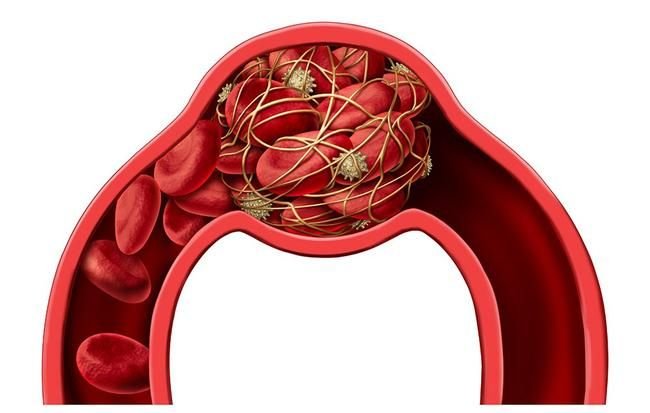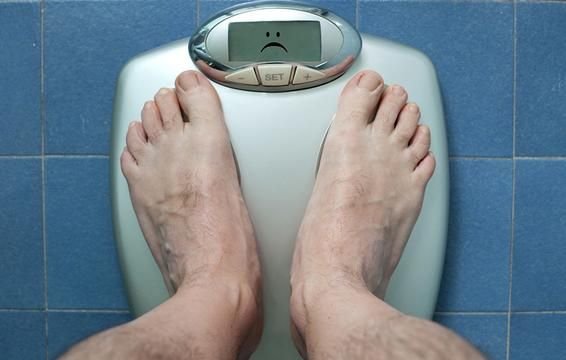The suffering of those who suffer from insomnia and stay up late!

The vascular system is the circulatory system in the body, helping to regulate and pump blood and nutrients to nourish the body.
Blood clots are the direct cause of cerebral blood vessel blockage (Getty Photo)
Obstructive vascular disease is a common disease, but people with the disease are quite indifferent due to subjective thoughts.
Below are early signs of 8 types of people susceptible to clogged blood vessels.
1. Overweight or obese

When you gain weight, the pressure on the veins in the pelvis and legs increases. (Getty Photo)
Experts agree that being obese puts you at higher risk of blood clots forming in your veins and traveling through your bloodstream leading to venous thromboembolism, or venous thromboembolism.
2. Smoking

Smoking a lot is a potential risk of many dangerous diseases because cigarettes are very toxic (Photo shutterstock)
“People often think that smoking only affects the lungs, but it actually also affects your blood vessels.”

Smoking causes stroke and cardiovascular disease – one of the leading causes of death in the US (Getty Photo)
3. Pregnant women

One of the common diseases in pregnant women is blood vessel obstruction (Getty Photo)
For pregnant women, this disease occurs in the leg veins, and can sometimes occur in the iliac veins during pregnancy.
4. Use Estrogen supplements
Estrogen supplements such as birth control pills can also increase the risk of blood clots (Getty Images)
When suffering from blood vessel obstruction such as: cerebral vascular obstruction, myocardial infarction, coronary artery inflammation… you should stay away from birth control pills.
Trends and Inspiration
If you want to be healthy and beautiful, you must exercise
5. People who are susceptible to infections due to trauma
Venous thrombosis (also known as blood vessel blockage) is the most common complication in cancer patients. (Getty Photo)
If you are facing illness or infection due to injury, you should be alert for symptoms from abnormal blood vessels.
6. Standing for a long time or sitting in one place for a long time
People who have the habit of sitting in one place for a long time are accumulating many diseases that directly threaten their lives without even knowing it. (Getty Photo)
People who work and sit for many hours a day in cars, planes, and offices without getting up and moving are at risk of chronic diseases such as cancer, hemorrhoids, blood pressure, and heart disease… When you sit for a long time
Burgwinkle added: “I once had a patient who developed blood clots leading to venous obstruction after spending long periods of time working in narrow spaces.
7. Blood vessel blockage due to genetics
Genetics is considered a common factor leading to disease outcomes, not just obstructive vascular disease (Getty Images)
A family history of blood clots is also one of the risk factors for the disease.
8. You have a history of disease
It’s impossible to completely prevent this chronic disease because some things that increase the risk of thromboembolic disease cannot be changed (Getty Images )
Have you ever had a history of blood clots?
The disease can occur in everyone, of all ages, including children, but mostly in older people (60 or more).
To prevent stroke, it is necessary to combine a reasonable lifestyle with prophylactic drugs that have anticoagulant effects, reduce blood viscosity, prevent platelet aggregation, and dilate blood vessels.


